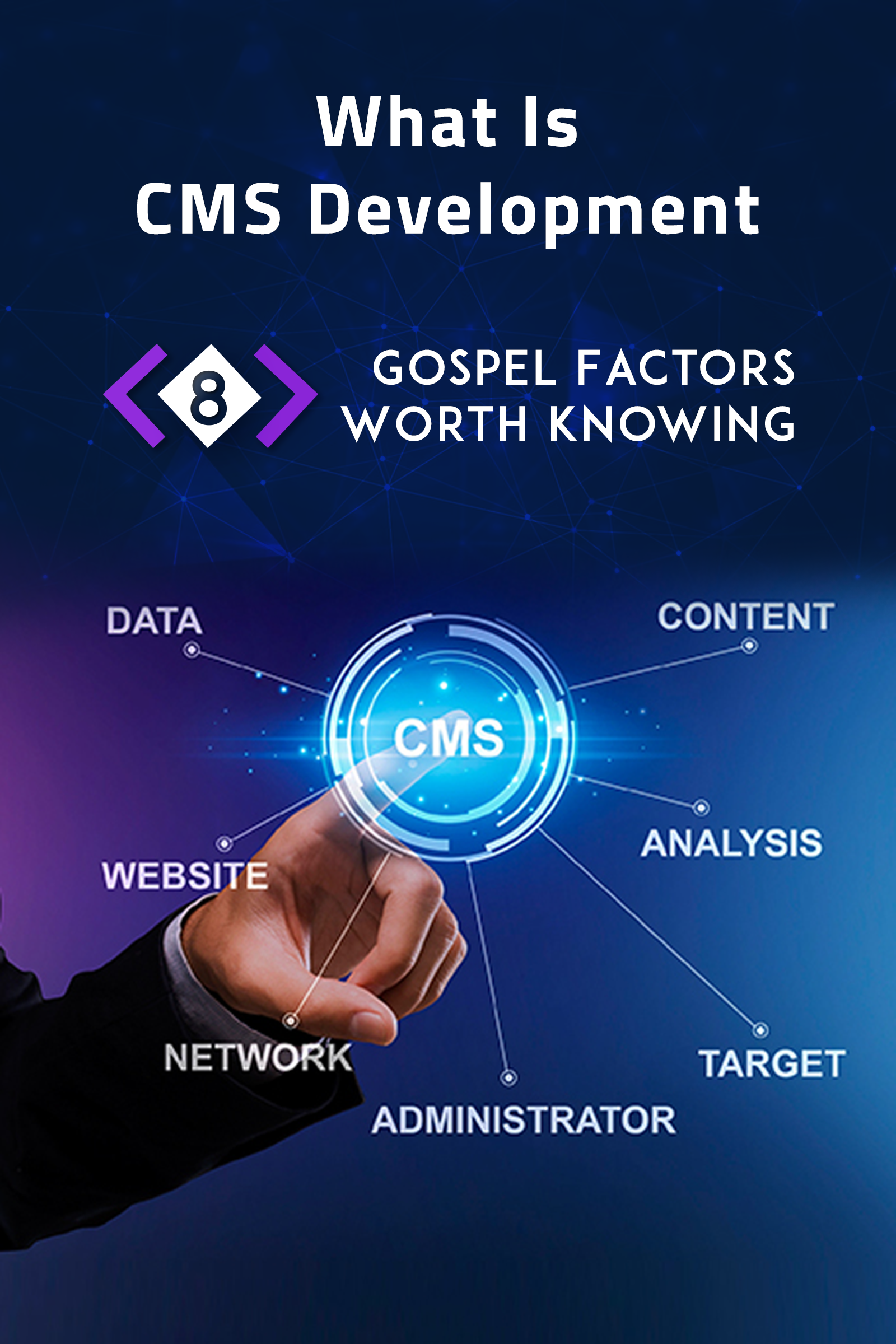What is CMS Development? If the term sounds alien, just sit back, relax, and read our blog, which will guide you through 8 industry-backed truths, covering everything you need to know.
Globextra is your one-stop destination for all your needs. Our services are backed by experts in each domain who ensure that the work is done just the way you want. You might be wondering why you should choose us among other players. The reason is our global reach with over 8 years of experience. We take one project at a time, giving it our utmost attention and designing it keeping your individual needs in mind. In case you need further conviction, our blog will surely help you to decide.

What Is Content Development Systems – 8 Worth Knowing Facts
Content Development System (CDS) has become the backbone of modern web development that helps individuals or organizations to create, manage, and modify digital content with ease. In this blog, we will delve into the history, definition, importance, types, popular platforms, and the crucial role of CMS in web development through 8 must-know factors. Additionally, we’ll examine the differences between CMS and traditional web development and conclude with main learnings.
Let us begin with the history.
1. History of Content Development Systems Or CMS
Over the years, CMS platforms have evolved by incorporating advanced features like drag-and-drop, plugins, and heavy customization options. Today, CMS tools have become indispensable for individuals, small businesses, and large enterprises.
2. What is a CMS? Definition and Functionality
A Content Development System (CMS) is a software application or platform that allows users to create, edit, organize, and publish digital content, typically for websites. It provides a user-friendly interface that eliminates the need for extensive technical expertise. Key functionalities of a include:
- Content Creation: Useful for writing, formatting, and uploading content.
- Content Management: Helps to organize content into categories, tags, or menus.
- Publishing: Gives the option to preview and publish content instantly or schedule it for later.
- Customization: Helps you to modify themes, layouts, and design elements.
- Integration: Adds to the compatibility quotient with plugins and extensions as an added functionality.
3. Importance of CMS That Cannot Be Ruled Out
The importance of CMS lies in its ability to balance web content management. Here’s why it’s a game-changer:
- Accessibility: CMS platforms enable users with minimal to zero technical knowledge to manage their websites effectively.
- Efficiency: Smooth running processes help to reduce the time and effort required for content updates.
- Adjustable Quotient: CMS platforms can handle websites irrespective of if they are personal or intended to be used by large companies.
- Cost-Effective: Reduces the dependency on developers for routine tasks thus, helping you to save money.
- SEO-Friendly: Built-in tools and plugins help to optimize content for search engines.
4. Types of CMS To Know
Content Management Systems come in various forms, each catering to different needs. We will read about the four main types
Traditional CMS: Helps with a uniform system for back-end content management and front-end display.
Examples: WordPress, Joomla, Drupal.
Best suited for: Blogs, portfolios, and small to medium-sized websites.
Headless CMS: Runs the back-end content management by teaming with front end content system. The content is delivered via APIs that allow developers to use any front-end technology.
Examples: Contentful, Strapi, Sanity.
Best suited for: Complex websites, mobile apps, and multi-platform distribution.
Decoupled CMS: This is quite similar to headless CMS but with a pre-defined set of front-end frameworks that combines the flexibility of headless CMS with a ready-to-use presentation layer.
Examples: Sitecore, Magnolia.
Works best with: Enterprises requiring advanced personalization and for websites with multi-channel capabilities.
E-Commerce CMS: This is a boon for online stores helping brands with product management, payment processing, and inventory control. Some exemplary names are Shopify, Magento, and Woo Commerce.
Beneficial For: Online retailers and e-commerce websites.
5. Some Popular CMS Platforms And Their Popularity Reasons
Several CMS platforms dominate the market and each offers its own unique advantages:
- WordPress: This has a global reach of over 40% of websites globally. It offers ease of use, an extensive plugin library, and customization options.
- Joomla: This is designed for more advanced functionality than WordPress and you learn on the way. Drupal is the best example.
- Highly flexible and secure, ideal for large enterprises.
- Shopify: A leading e-commerce CMS with seamless payment integration.
Popular website builders offering CMS-like features with drag-and-drop simplicity. Wix and Squarespace are ruling examples in this segment.
6. CMS V/S Traditional Web Development
The choice between a CMS and traditional web development depends on project requirements. We hope the differentiating points mentioned below will help you get an understanding.
| Aspects | CMS | Traditional Web Development |
| Ease of Use | User-friendly, no coding required | Requires coding knowledge |
| Customization | Limited to themes/plugins | Fully customizable |
| Time to Launch | Faster setup and deployment | Longer development cycle |
| Cost | Affordable | Higher development costs |
| Maintenance | Managed via updates/plugins | Requires developer support |
| Scalability | Suitable for most needs | Ideal for specific requirements |
7. Role of CMS in Web Development
CMS plays a crucial role in modern web development by:
– Empowering Non-Developers: Allows content creators to update websites independently.
– Easing Processes: Reduces the time required to update websites and re-designs.
– Encouraging Teamwork: Enables multiple users to work simultaneously on content.
– Ensures Consistency: Maintains equality in design and structure across web pages.
– Enhances User Experience: Provides responsive, SEO-optimized, and visually appealing designs.
8. Key Takeaways
CMS Evolution: From manual coding to sophisticated platforms, CMS has revolutionized web management.
Versatility: CMS platforms cater to varied needs, from personal blogs to enterprise-based solutions.
Efficiency and Accessibility: Saves time, reduces costs, and makes web development accessible to non-tech users.
Customization and Flexibility: Different types of CMS (traditional, headless, decoupled, and e-commerce) handle specific requirements.
Future-Ready: With advancements in AI and machine learning, CMS platforms continue to innovate, offering better functionality and user experiences.
Content Management Systems have fundamentally transformed the way websites are built and managed. You can be a solo blogger or a large organization but understanding the types and capabilities of each CMS platform is essential to help your business grow. As technology evolves, the role of CMS in web development will not only grow but, at the same time make it a critical tool for anyone looking to establish or enhance their digital presence. If you are still in doubt, you can always reach out to us through our website.
Happy Creating!!!

Leave a Reply